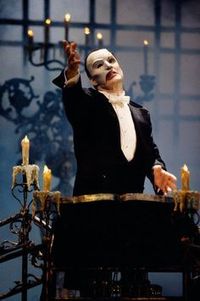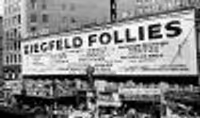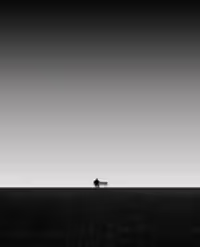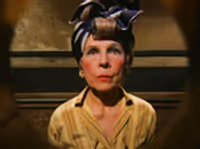Sound design question
#1Sound design question
Posted: 10/6/16 at 8:43pm
Hey guys!
I've always had a general interest in sound design (it's my favorite creative/design element of a given production) and I wanted to learn a bit more about it tonight - does anyone know of any interviews about designing sound for a specific theater? Know it's a really specific question, but I figured the creatives who look at this board from time to time (I'm sure BWW has more than a few sound designers in its ranks) might know of something.
There are designers like Peter Hylenski who get hired, it seems, to do the sound design in a specific theater (with Hylenski it seems to be the St James) way more than others. I loved a ton of what he did with the Bullets Over Broadway sound design - I saw the show from a few different places in that theater and it seemed like he succeeded in getting vocals to sound equally resonant and clear sounding (I'm a bit persnickety with that element of sound design.
There are some designers who seem to focus on things like transparency, and it often sounds like voices are stifled (not going to name any designers or specific shows, but I've heard some designs where performers like Judy Kaye - and she's a powerhouse capable of hitting the back of the house with that magnificent set of pipes - sound a bit stifled the way vocals were mixed.
With Hylenski's design for Bullets, there were certain sequences (Nick Cordero has a bigger sounding voice in general, but the way the mix was done, the Up a Lazy River sequence sounded natural and crisp) where vocals sounded like they inhabited the space just right. Likewise, a lot of the group numbers (the female ensemble in that Hold That Tiger number) had magnificent clarity - not an easy feat to pull off with multiple performers singing simultaneously (Hylenski's mix seemed to make each individual ensemble members voices sound like separate entities - I've heard designs go the other way, where group numbers sound like a big blob of sound without much care given to naturalism).
Is there something about designing for specific spaces like the St James where an in depth understanding of the building/structure comes into play? Could be happenstance that Hylenski's been hired that many times to work the St James, but within the design community, is the understanding that having knowledge of a spaces flow and mechanics makes a designer more attractive to a producer of a show heading into a theater like the St James?
#2Sound design question
Posted: 10/6/16 at 9:16pm
This article knocked my sox off when it came out:
http://motherboard.vice.com/read/hamilton-is-revolutionizing-the-art-and-science-of-broadway-sound-design
#3Sound design question
Posted: 10/6/16 at 9:19pm
Thanks for sharing that! Checked it out already a while back, but I appreciate you sharing it - it's exactly the kind of piece I was looking for!
AEA AGMA SM
Broadway Legend Joined: 8/13/09
#4Sound design question
Posted: 10/6/16 at 10:37pm
Here's an article I remembered from a few years ago that talks about Billy Eliot, Hair, South Pacific, and Wicked.
http://www.mixonline.com/news/live-gear/broadway-sound/368698
#5Sound design question
Posted: 10/6/16 at 10:54pm
Loved that article! Some of the tech specs went a bit over my head, but you can still get a sense of what they have to do differently with different types of shows - loved the part about designing South Pacific for the Beaumont (as a theater, it can't be an easy space to design for in general - between the thrust and arena style seating), and Hair too (another tough show to design for, the Paulus revival at the Hirschfeld involved actors moving around that stage regularly, climbing onto different parts of that minimalist set and even going out into the house - ensuring that you pick up audio evenly and can mix naturally when actors are doing some pretty athletic (being constantly in motion, having blocking and improvisational moments span the stage and house) stuff has to be tricky! Great article!
Updated On: 10/6/16 at 10:54 PM
trpguyy
Broadway Legend Joined: 2/25/05
#6Sound design question
Posted: 10/7/16 at 1:29am
Designers build relationships with directors, composers, and producers. Just like most other designers, they're often attached to the project even before a theater is secured. Any correlation between a designer and a particular theater is little more than coincidence.
If you really want to hear how much a theater affects the sound of a show, see the same touring production in two different venues.
As far as reading material goes, Shannon Slaton has a book on the subject of Broadway sound, and Bob McCarthy wrote the proverbial encyclopedia of sound reinforcement.
There's also the annual Broadway Sound Masterclass, and you can try to reach out to sound people via their public social media (i.e. Twitter account) with questions.
#7Sound design question
Posted: 10/10/16 at 12:56pm
This video is pretty interesting https://youtu.be/WRlJ4UHkbGs
#8Sound design question
Posted: 10/10/16 at 5:18pm
Check out the American Theatre Wing's website. Maybe their series Working in the Theatre has something.
#9Sound design question
Posted: 10/10/16 at 6:38pm
Here's a good book if you don't have it already, Mixing a Musical: Broadway Theatrical Sound Techniques
You should also keep an eye on the site Live Design as they frequently have articles and interviews that are specific to Broadway sound.
Videos






